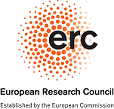BOLD: A background-free experiment to discover the nature of neutrinos based on single Barium Atom Light Detection

Specific programme: European Research Council Synergy Grant
UPV/EHU Partner Status: Beneficiary
UPV/EHU PI: Fernando Cossio
Project start: 01/04/2021[SR1]
Project end: 31/03/2027
Brief description: Searching for neutrinoless double beta decays (NLDBD) is the only practical way to establish if the neutrinos are their own antiparticles, a discovery of enormous importance for particle physics and cosmology. Due to the smallness of neutrino masses, the lifetime of NLDBD is expected to be much longer than the ones from the noise associated with the natural radioactive chains. A positive identification of NLDBD decays requires finding a signal that cannot be mimicked by radioactive backgrounds. In particular, the NLDBD decay of Xe-136 could be established by detecting the doubly ionized daughter atom, Ba2+ created in the decay. Such a detection could be achieved via a sensor made of a monolayer of molecular indicators. The Ba2+ would be captured by one of the molecules in the sensor, and the presence of the single Ba2 +-complexed indicator would be subsequently revealed by a fluorescent response after interrogation with a laser system.
Our proposed sensor is based on a new type of molecular bicolor fluorescent indicators, able to shift their emission spectra when complexed with Ba2+. The interrogation and detection system will be based in fast, two photon absorption microscopy. The primary goals of this proposal are: 1, a full demonstration of the feasibility of a sensor capable of detecting single Ba2+ ions in a High Pressure Xenon Chamber (HPXe), and 2) the construction of a large HPXe demonstrator, the BOLD detector, which will implement a full Barium Tagging Detector System and will demonstrate the feasibility of building a background free experiment at the ton-scale, with large discovery potential.
[SR1]Pending confirmation
